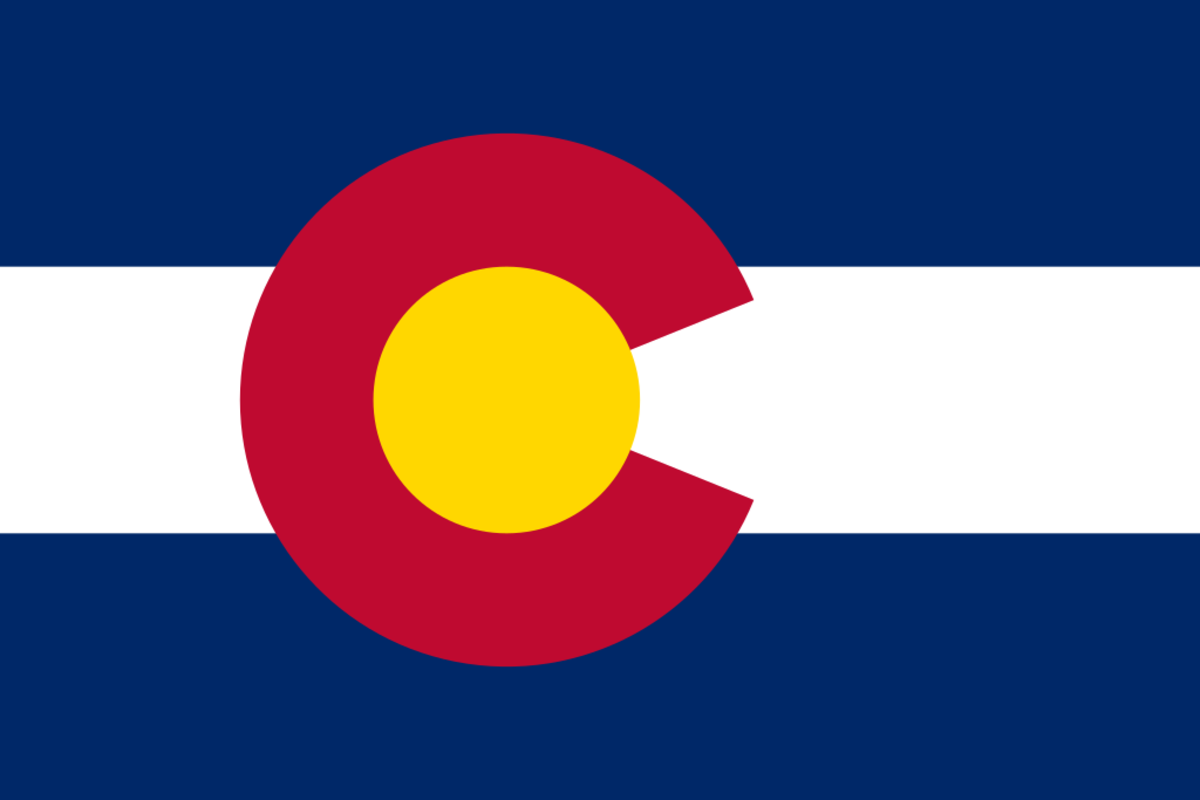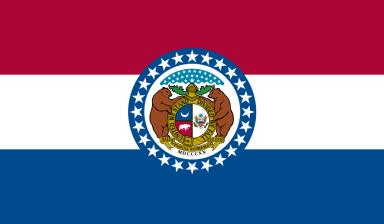Colorado Employment and Labor Laws

In 2021, a well-known Colorado sports anchor took legal action against a major regional sports cable and satellite TV network. Instead of hosting games, he was asked to create short segments about gambling from home. The subsequent 34-page lawsuit claims the entertainment company treated him unfairly, alleging lower pay compared to his colleagues and pressure to sign an at-will contract in 2018. The plaintiff sought punitive damages, back pay, and a denied $5,000 bonus. This case highlights workplace discrimination in Colorado, affecting people across different jobs.
As of June 2023, Colorado has about 3,157,500 workers, making up 66.8% of residents 16 and older. With this sizable workforce, it is crucial to understand the rules governing pay, hours, overtime, hiring, and workplace behavior.
This article aims to provide a clear overview of Colorado's employment and labor laws, ensuring the well-being of both workers and employers.
Colorado Wage and Hours Law
Colorado Minimum Wage Law
Colorado's minimum wage is $14.42 as of 2024. According to Amendment 70 of the wage law, which became effective in January 2017, annual revisions of the state minimum wage will be conducted to account for inflation and escalating costs of living. The Consumer Price Index for Colorado, which keeps track of changes in the cost of necessities, determines this adjustment. Employees in the U.S. who make the federal or state-set minimum wage are subject to the amendment.
People who depend on tips can earn up to $3.02 per hour to help them meet the minimum wage, which was initially set at $11.40. In instances where an employee's combined cash wage and tips fall short of the hourly minimum, employers are obligated to bridge the gap.
Any infractions against Colorado’s minimum wage law may be raised with the Division of Labor Law Standards and Statistics, which can then conduct employer-wide investigations. To submit a tip or complaint, email the division at cdle_di_tips@state.co.us.
Colorado Overtime Pay
In Colorado, employees receive more favorable overtime benefits compared to federal regulations. While federal law stipulates receiving 1.5 times the regular pay for working over 40 hours a week, Colorado extends this rate to individuals working over 12 hours in a single day or more than 12 hours consecutively, excluding meal breaks.
Some jobs don't qualify for overtime pay, like bosses, salespeople who work outside, elected officials, and certain live-in workers like babysitters or property managers.
Healthcare workers have their own overtime rules in Colorado. Hospitals and nursing homes can agree with employees on how to handle overtime using the "Eight and Eighty Rule." This rule means workers get 1.5 times their normal pay for any hours over 80 in two weeks or over eight in one day.
Wage Payment
Employers and employees can decide how often pay happens. If there is no agreement, it should be at least once a month or every 30 days, whichever is more. Paydays should be within 10 days after each pay period ends.
The following details must be included on pay stubs or statements, which must be provided for every pay period:
Total earnings before deductions.
Deductions (such as taxes or insurance, if applicable).
The amount the employee receives.
Dates covering the pay period.
Employee’s name or Social Security number.
Employer’s name and address.
Colorado Laws on Employee Leaves and Time Off
Paid Sick Leave
Colorado employers must provide their employees with two types of paid sick leave under the Healthy Families and Workplaces Act: accrued and public health emergency leave (which is not currently active). Paid sick leave allows a worker to take time off work and be paid the same as their regular salary. Employers cannot discipline employees who use paid sick leave. This includes being fired or getting into other types of trouble.
Employers are required to grant one hour of accrued, paid leave for every 30 hours worked, with a maximum of 48 hours per year. This accumulated leave can be used for a variety of health and safety reasons, such as:
Not being able to work because of an illness, injury, or medical condition, mental or physical.
Getting a medical diagnosis, treatment, or care, or getting preventive medical care like immunizations.
Handling needs resulting from domestic abuse, sexual assault, or criminal harassment, such as medical attention, mental health care, counseling, legal services, victim services, or relocation.
Providing care to a family member who needs the same type of assistance mentioned above.
Effective August 7, 2023, employees may also use this type of leave for bereavement or addressing financial or legal matters following the death of a family member. They may likewise take a leave when dealing with adverse weather conditions; loss of power, heating, or water; or unexpected events that require the employee to vacate their residence or care for a family member when their school or care facility is closed.
Jury Duty
It is against state law for employers to threaten, coerce, or fire employees who report for jury duty as required. For the first three days of jury duty, all regularly employed trial or grand jurors shall receive regular compensation from their employers at no more than $50 a day unless both parties agree otherwise.
An employer is not legally mandated to compensate an employee who participates in unrelated legal matters, such as responding to a subpoena or taking part in a legal proceeding as a witness, defendant, or plaintiff.
Colorado’s Family and Medical Leave
All Colorado employees will be entitled to paid time off when they need to take care of themselves or their family members due to specific situations, effective January 1, 2024. Eligible employees can take up to 12 weeks of leave, with an additional four weeks available for pregnancy- or childbirth-related complications.
The Colorado Family and Medical Leave Insurance program, run by the state and supported by employees, will pay workers during their time off.
Other Forms of Leave
There are other types of time off that Colorado employees can take, including:
Military Leave: Employees of both public and private employers who are members of the National Guard, reserve forces of the United States, or any other state military forces are eligible to take a leave of absence from work for training or active state military service.
Civil Air Patrol/Qualified Volunteers Leave: Members of the Civil Air Patrol and other qualified volunteer emergency workers who are explicitly requested to assist with a disaster shall be eligible to take a maximum of 15 working days of leave per year.
Domestic Abuse Leave: This type of leave is available to employees who have been victims of domestic abuse, stalking, sexual assault, or any other crime related to domestic abuse. Employees have the right to request for or use up to three working days of leave within 12 months, regardless of whether they receive pay or not.
Colorado Laws on Equal Pay
The Equal Pay for Equal Work Act took effect in Colorado in early 2021. It requires all state employers to provide equal compensation and benefits for employees doing substantially similar work, irrespective of their protected class. Employers must include compensation details in job postings, communicate promotion opportunities to employees, and keep records of job descriptions and wage rates.
There are six valid justifications for discrepancies in pay:
Location.
Production quality or quantity.
Education and training.
Seniority.
Travel.
Merit.
An employer who violates regulations regarding transparency in pay and employment opportunities may be subject to investigation and fines ranging from $500 to $10,000 per violation.
Colorado Child Labor Laws
The Colorado Youth Employment Opportunity Act defines a minor as someone under the age of 18 who does not have a high school diploma or a satisfactory GED score.
Additionally, Colorado employers must follow specific regulations when hiring individuals under the age of 16. These regulations restrict the number of hours a minor employee can work each week and within a 24-hour period.
For minors under 16, the restrictions are as follows:
They cannot work more than 40 hours per week or more than eight hours in a 24-hour period.
On school days, they can only work for three hours.
On non-school days, they can work for up to eight hours.
During a school week, they are not allowed to work more than 18 hours.
When a minor’s school district is in session, Friday is considered a school day. If the school has a four-day week, non-school hours apply on the fifth day.
Minors under 16 can work a maximum of 40 hours per week if school is not in session.
There are no limitations on the permissible working hours for older youths aged 16 to 17. They cannot, however, work more than eight hours a day or 40 hours a week.
There are also jobs in Colorado where minors are not permitted to work due to the inherent risks involved. These include quarrying, mining, heavy machinery operation, and the manufacture, handling, and storage of explosives.
Colorado Anti-Discrimination Act
The Colorado Anti-Discrimination Act ensures fair employment practices by prohibiting employers from engaging in discriminatory behavior based on various protected attributes. Except for religious institutions and associations that do not get funding from the government, all employers throughout the state are subject to this Act.
The Act prohibits discrimination in the workplace against the following attributes and characteristics:
Age.
Sex or sexual orientation.
Pregnancy, including childbirth.
Disability.
Religion or creed.
Race or ethnicity.
National origin.
Marriage to a coworker (applicable in certain situations).
In addition, the Act prohibits employers from retaliating against an employee who reports instances of illegal employment discrimination or takes part in investigations related to employment discrimination complaints.
Colorado Chance to Compete Act
The law, also known as Ban the Box, aims to protect people with prior criminal records from discrimination during the early stages of the job application process. Specifically, employers are prohibited from:
Announcing that applicants with criminal records are ineligible to apply.
Explicitly stating on any application form, including those completed and submitted electronically, that individuals with criminal records may not apply.
Asking for information about criminal histories or enquiring about specifics of such histories.
The law is intended to prevent employers and businesses from automatically dismissing applicants based on their criminal records, instead encouraging them to focus on the applicant's experience and skills. All Colorado employers, regardless of size or nature, must comply with this regulation.
Individuals can report a potential violation of the Colorado Chance to Compete Act to the Division of Labor Standards and Statistics by completing and submitting the Chance to Compete Act Complaint Form.
Is Colorado an At-Will Employment State?
In Colorado, most jobs operate under the “employment-at-will” rule. This means that employers and employees can end the working relationship whenever they want, without giving a reason or notice, unless there is a specific work contract or an agreement that indicates otherwise.
There are, however, instances where this rule does not apply, such as terminations involving discrimination, public policy issues, or specific contracts.
What Qualifies as Wrongful Termination in Colorado?
Colorado's employment-at-will principle makes it difficult to prove wrongful termination. However, there are times when an employee may have legitimate reasons to file a claim against their employer. These scenarios include:
Discrimination when an employee belongs to a certain protected class.
Retaliation, such as in a whistleblower case.
Issues related to wages and hours.
Instances of sexual harassment or situations involving “quid pro quo.”
Breaches of contract.
Failure to offer a safe working environment.
FMLA, military, jury duty, or voting leave.
Refusal to break the law or take part in illegal employment practices.
Termination after filing a workers’ compensation claim.
How to Report an Employer in Colorado for Wrongful Termination
Before taking legal action, it is important to identify the type of claim. In Colorado, if the claim involves discrimination, harassment, or retaliation based on a protected category, the standard procedure is to submit the claim to either the Colorado Civil Rights Division or the Equal Employment Opportunity Commission.
The integrity of supporting documentation and evidence plays a crucial role in the likelihood of a successful wrongful termination claim. Documents such as email correspondence, performance reviews, and witness statements can serve as valuable evidence. These materials provide a comprehensive overview of the events leading to the termination, emphasizing any unfairness in the dismissal. Thorough documentation of instances involving harassment, discrimination, or retaliation from the employer further strengthens the case for wrongful termination.
To formally lodge a claim, it is strongly advised that employees seek the assistance of a Colorado employment lawyer.
What Is the Statute of Limitations for Wrongful Termination Cases in Colorado?
Depending on the type of claim, Colorado has several statutes of limitations for wrongful termination cases. A summary of the various claim types and their corresponding deadlines can be found in the table below:
How Much Can Someone Sue an Employer in Colorado for Wrongful Termination?
Settlement payouts for wrongful termination claims in Colorado typically vary from $6,000 to $80,000, while courtroom awards tend to be higher, ranging from $100,000 to $500,000. Employers often prefer reaching a mutually agreeable resolution precisely due to the potential for higher awards in court.
Compensation for wrongful termination considers factors like emotional distress, lost wages, job search costs, termination reasons, and, if applicable, medical expenses. In exceptional cases where the employer's behavior is severe, punitive damages may also be awarded.
Resources for Employees in Colorado
The resources listed below can assist people in Colorado who have been unfairly laid off or face a hostile working environment. These resources are also useful for those thinking about filing a lawsuit against their employer.
Towards Justice
Towards Justice is a nonprofit organization founded in 2014 to represent Colorado employees in litigation and other forms of advocacy to strengthen worker power and advance economic justice in the state and across the country. The organization systematically engages policymakers on issues of worker power and workplace protection. It also educates workers about their rights, assists them in identifying illegal practices, provides free and confidential consultation to disgruntled employees, and connects wage theft victims to appropriate organizations that can provide additional assistance.
Man Therapy
Based in Colorado, Man Therapy was founded to prevent suicide among the most vulnerable males. These include people who have recently lost their jobs or are experiencing work-related stress, as they often lack access to support systems. Founded by a group of mental health experts, suicidologists, creatives, and marketing strategists, this Colorado Department of Public Health and Environment-affiliated nonprofit's mission is to "make mental health approachable by using humor to break the stigma."
Colorado State Employee Assistance Program
CSEAP is a project established by the Department of Personnel and Administration. The program's goal is to assist state employees and employers in dealing with personal and work-related issues. It also offers free training, counseling, and organizational development services to state employees and agencies. CSEAP receives funding from Colorado state statutes.
Expertise.com StaffAuthor
Step into the world of Expertise.com, your go-to hub for credible insights. We don't take accuracy lightly around here. Our squad of expert reviewers, each a maestro in their field, has given the green light to every single article you'll find. From rigorous fact-checking to meticulous evaluations of service providers, we've got it all covered. So feel free to dive in and explore. The information you'll uncover has been stamped with the seal of approval by our top-notch experts.




